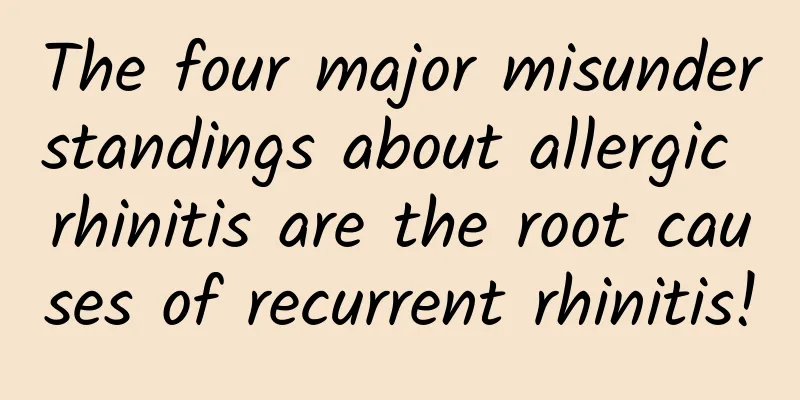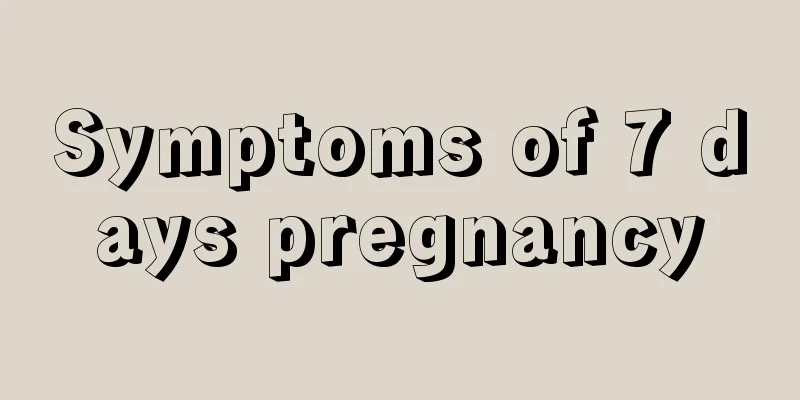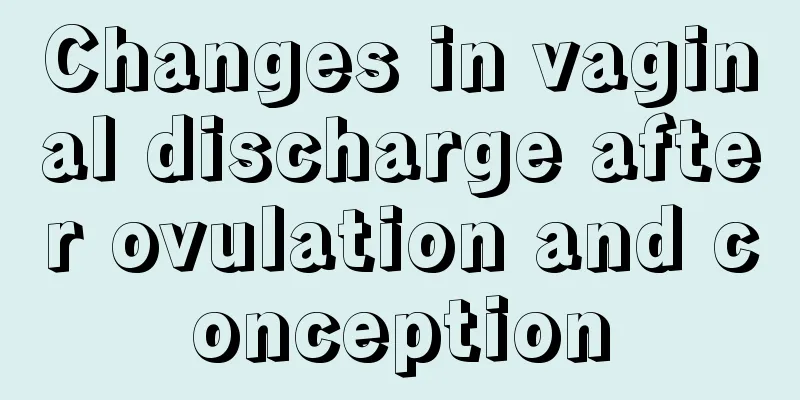The four major misunderstandings about allergic rhinitis are the root causes of recurrent rhinitis!

|
As we all know, allergic rhinitis is most likely to recur, especially in spring and autumn. So why does rhinitis recur? In fact, it is because when you first suffer from allergic rhinitis, your condition worsens due to improper cognition or understanding. Qingbitang: Four common misunderstandings about allergic rhinitis! Allergic rhinitis is not a big deal Every spring, many people begin to enter the "sneezing season" because every time they go outing, they will sneeze continuously, and they may sneeze more than a dozen times. Most people always take allergic rhinitis lightly, thinking that a few sneezes will be fine, but they don't know that it can cause great harm! If allergic rhinitis is not treated in time, a series of complications such as nasal polyps, bronchial asthma, secretory otitis media, sinusitis, etc. may occur, which will endanger your health! A stuffy and runny nose is a cold. The main symptoms of patients with allergic rhinitis are runny nose, itchy nose, frequent sneezing, etc., so many people mistake it for a cold. In fact, rhinitis caused by colds is mostly acute rhinitis, which is caused by viral infection. In the early stage, due to congestion and dilation of nasal mucosal blood vessels and increased glandular secretion, clear watery nasal discharge appears. After 3 to 5 days, the mucosal exudate accumulates on the mucosal surface to form purulent mucus secretions. Some patients with acute rhinitis may have repeated attacks and turn into chronic rhinitis, and the symptoms worsen after a cold and last for more than 4 weeks. Stopping medication too early Many patients only take medication when the disease attacks, and stop taking it as soon as the symptoms are slightly relieved, which causes allergic rhinitis to get better and worse, or even become more and more serious. Medical experts recommend that for perennial allergic rhinitis, each attack should be treated for 1 to 2 months, and some patients even need to treat for half a year; for seasonal allergic rhinitis, medication should be taken 2 to 3 weeks in advance, and after the season, the medication should not be stopped immediately, but should be continued for about two weeks. Use nose drops if you have nasal discomfort Some patients with chronic nasal congestion use local decongestants alone, and the application is casual, up to 5 to 10 times a day. Since this type of nasal drops usually have a strong vasodilator rebound effect and are the most common cause of drug-induced rhinitis, the course of treatment should not exceed three days, and the number of nasal drops per day should not exceed three times. Qingbi Hall kindly reminds you: The above are the four major reasons for recurrent rhinitis. Check to see if you are affected. If you suffer from rhinitis, you must go to Qingbi Hall in time for a scientific solution! |
<<: Can adults do pit and fissure sealing to prevent tooth decay? Does teeth cleaning damage teeth?
>>: Can allergic rhinitis be complicated by asthma? Here comes the truth!
Recommend
How can I mail crabs alive? Can I reheat crabs if they are cold?
In ancient times, crabs were considered as one of...
Abortion test one month weak positive
Many couples are not prepared for pregnancy, and ...
Is it inflammation when the breast B-ultrasound shows rough edges?
If a woman feels that there is a disease problem ...
Can I do a chest X-ray while preparing for pregnancy?
If you need to check your body when preparing for...
List of actors in the TV series "Savage" When will the TV series "Savage" be broadcast?
After the film and television adaptation of "...
CleverTap: Women account for 54% of e-commerce app usage in India
CleverTap's survey reveals opportunities in t...
How to make a pregnancy test at home?
Pregnancy test sticks can be used to test whether...
Women suddenly have frequent urination, painful urination, and blood in urine
The reproductive structure of women is relatively...
Can't understand the physical examination report? These indicators can help you understand liver function
Author: Qiu Zewu, Chief Physician of the Fifth Me...
The causes of lower abdominal pain in women vary
Is your period coming? If the lower abdominal pai...
When is the most accurate time for early pregnancy test?
Early pregnancy test strips are products used by ...
Do you know the dangers of smoking?
Many times we all know that smoking is not good f...
Solutions for long-term constipation in women
Although constipation is a common symptom, for mo...
What are the drugs that shrink the uterus after childbirth?
After giving birth, you definitely need to pay mo...
Can pregnant women drink mung bean soup in the late stage?
Mung bean porridge in daily life is a kind of swe...









